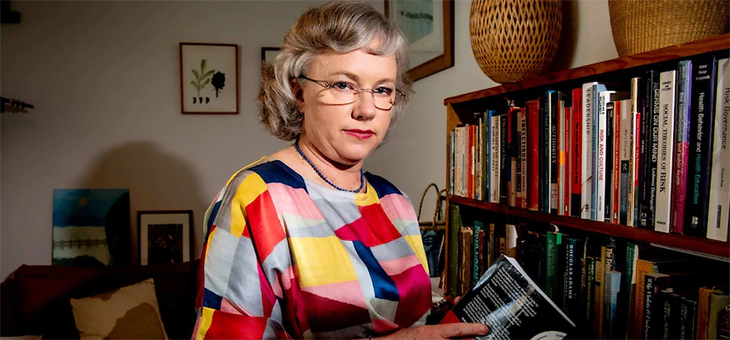We’ve probably all heard the line that COVID-19 vaccinations are the best way to reopen Australian businesses and borders.
Politicians and health authorities around the country have been spruiking it for months, and this week dialled up their rhetoric in a bid to encourage eligible Australians to book in for a jab.
Australians aged over 50 have been able to get an AstraZeneca vaccine since May 3, but Professor Julie Leask – who specialises in immunisation research – says some in this key demographic are biding their time.
On April 8, the federal government announced people in this age group would get the AstraZeneca shot, while younger Australians would be given the Pfizer vaccine after extremely isolated cases of blood clotting in some people raised the alarm.
Here’s why some over 50s aren’t booking in.
GPs ready for patients
More than one million people in Australia’s most populous state, NSW, have been vaccinated, and the state government says more people are booking in for jabs each day.
The opening of a mass vaccination hub at Sydney Olympic Park earlier this month has been a game changer, but most over 50s aren’t permitted to go there yet.
That’s because it’s only administering the Pfizer shot at the moment. The NSW government will begin handing out AstraZeneca doses there from Monday, May 24.
This week, Premier Gladys Berejiklian pushed for more people aged over 50 to get the AstraZeneca jab, after GPs recorded a stagnation in vaccine interest, which was reflected in an Australian Bureau of Statistics (ABS) survey that showed 23 per cent of respondents stated they were unsure about whether they would be vaccinated.
“GPs have been given extra doses,” Ms Berejiklian said.
“They are ready and waiting to receive you as an over 50-year-old.”
Why some people are holding out
According to Professor Leask, one of the reasons some older Australians could be opting to wait before booking a vaccination could be a lack of clear messaging.
Reports on rare blood clotting cases linked to the AstraZeneca jab first surfaced in early April and since then, the Therapudic Goods Administration (TGA) has recorded 12 cases in Australia.
“I expected the enthusiasm to drop off. But when I look at the data, rather than seeing a drop we’re seeing a plateau,” Professor Leask said.
“We’re hearing anecdotes from people that don’t want the AstraZeneca vaccine, and people trying to convince them, but I think the real issue is people are waiting until they are given more information.”
This early in the vaccine rollout, Professor Leask suspects the more likely reason for the lag is that people in the largely COVID-19 free Australia have simply not got around to it yet.
“Give people time to get their planets aligned,” she said.
“They’re perhaps holding off until more clarity is provided, specifically if they’re over 50 and have a history of blood clots, they want to get that answered and not for it to be just brushed off however unlikely that event is of occurring.”
The constant reminders from politicians could also be a turn-off, she said.
Millions of extra doses
The federal government has ordered 33 million more doses than it needs to vaccinate Australia’s entire adult population – although many of the shots aren’t arriving until later this year.
Initially, the AstraZeneca vaccine was supposed to be the backbone of Australia’s strategy as it was the only one that could be manufactured locally, but after last week’s federal budget, Health Minister Greg Hunt confirmed plans to fund an mRNA facility, which could produce the Moderna vaccine, in Adelaide, for late 2022.
The head of the TGA, Professor John Skerritt, maintained that the benefits of older Australians getting the vaccine still outweighed any risks.
“Sadly, we see that Australia is not immune from community transmission, and we’re certainly not immune from cases coming in through hotel quarantine. And remember that the risk of serious illness or death dramatically increases by every 10 years of age once you turn 50.
“By being vaccinated, we’re not only protecting ourselves, but we’re also protecting our loved ones, especially the older and more frail loved ones, and those around in our community.”
Last week, the Morrison government struck a deal with US pharmaceuticals giant Moderna to purchase 10 million doses.
A person requires two doses of either the Moderna, Pfizer or AstraZeneca vaccine to be considered immunised against COVID-19.
 © 2020 Australian Broadcasting Corporation. All rights reserved.
© 2020 Australian Broadcasting Corporation. All rights reserved.
ABC Content Disclaimer

